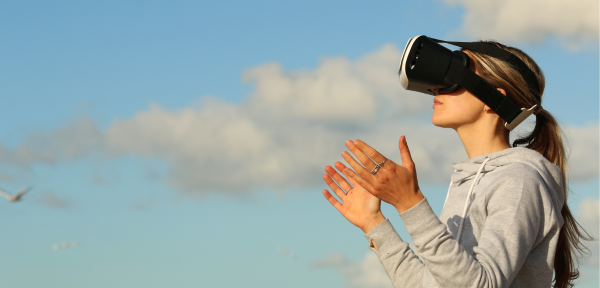AutismFIT

The AutismFIT project aims to promote the physical and mental well-being of young persons (aged 13-18) with autism or autism related symptoms like Attention Deficit Hyperactive Disorder (ADHD) and Obsessive Compulsive Disorder (OCD). It will promote healthy and balanced eating habits through Virtual Reality simulations and a custom-made game library based on the use of everyday objects .
Background
Autism Spectrum Disorder is a prevalent developmental disorder which affects 1% of the world’s population. Just as for everyone else, good diet and exercise are crucial to the physical and mental wellbeing of individuals with autism. The AutismFIT partnership, comprised of six partners from across Europe, recognises this and aims to provide resources and support for a healthy and active lifestyle for individuals on the spectrum. Research shows that serious games (games designed for a purpose more than pure entertainment) and gamified learning environments (GLEs) are some of the most common ways of learning and enhancing a learner’s engagement and performance. These methods are especially recommended for learners with specific learning disorders and ADHD. AutismFIT aims to develop an inclusive programme that supports the growth of personal, social, learning, civic, and creative skills in youth with autism. The project will create a Toolkit that includes a Virtual Reality Simulation (VR) to support physical activity and stress management, and a custom-made game library using the Makey Makey Intervention Kit to encourage healthy eating habits.
Aim
- Empower, engage and connect young people with autism through skill development and promotion of healthy eating habits.
- Improve the skills and digital abilities of youth workers, volunteers, and trainers (such as social workers, educators, physical instructors, and clinical dieticians) through a validated training programme. This training will help them better support young people with autism using innovative non-formal methods and digital tools, both online and offline.
Main target groups
- Young people (aged 13-18) with Autism Spectrum Disorder (ASD) or ASD related symptoms (e.g. ADHD or OCD).
- Youth workers, volunteers, and trainers (e.g. social workers, educators, physical instructors, clinical dieticians) working with young people with autism or autism-related symptoms (e.g. ADHD, OCD). The validated capacity building training will give the target group the competences and digital skills to better support young persons with autism.
- Training providers/institutes, schools and learning centres.
Project activities
- Innovative Forums: The Forums are workshops involving youth workers, parents, young persons with autism and experts such as dieticians and physical instructors. Their objective is to share co-design and holistic technology for it to be validated.
- Transnational Training Mobility: To train the staff, the project will organise training events in the different partner countries that will also inform them about the AutismFIT methodology, best practices, and digital tools such as virtual reality-based games.
- Transnational Capacity-Building Training for youth workers: To connect, engage, and enhance the healthy habits of young persons with Autism, the project will host both national and transnational capacity-building events.
- Launching Days: A campaign the partners will run to diffuse the project results and the organisation of the AutismFIT Fairs.
- AutismFIT Fairs: Workshops and events during which project results will be shared with the broader community.
Key results
- National Mindmaps (the results of the innovative forums will be shared in a more visual way, via the national mindmaps)
- Collection and categorisation of existing recommended programmes, tools and resource
- AutismFIT profile and competence framework
- AutismFIT Methodology (the methodology for creating content for the games, as well as using them)
- Validated Capacity Building Training for young people
- Accompanied Offline activities for young persons with autism
- Virtual Reality game for persons with autism
- Makey Makey Game Collection for young persons with autism
- Digital Platform (a repository of resources and best practices that promote the well being of people with autism)
- Multimedia Guide (instruction booklet that will help people with autism use the virtual reality games and activities)
Partnership
- Internationaler Bund (Coordinator, Germany).
- EASPD (Belgium)
- Emphasys Centre (Cyprus)
- AIAS Bologna (Italy)
- Special School Nicosia (Cyprus)
- Associação Portuguesa para as Perturbações do Desenvolvimento e Autismo de Coimbra Portugal (Portugal)
Duration
May 2024 – January 2026
EASPD contact:
Omor Ahmed: omor.ahmed@easpd.eu
Funding
Erasmus+ Cooperation partnerships in youth
Grant agreement number
2023-2-DE04-KA220-YOU-000178806

